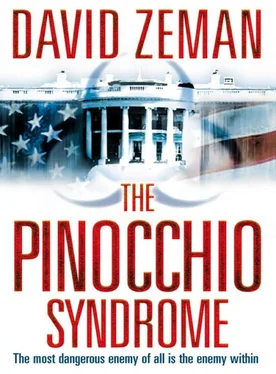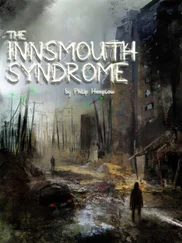‘Excellence without victory is like frosting without a cake.’
‘The man who finishes second is not a man. He is only a footnote.’
And of course the legendary Vince Lombardi maxim. Winning isn’t everything. It’s the only thing . Judd took this as holy writ, and made sure his son heard it often.
When the boy was very small he did not seem to understand these injunctions. But as he grew older, their deeper effect made itself felt. He attained success in everything he did. Though slight of build he was a natural and graceful athlete, a student to whom high grades seemed to come naturally, a handsome young boy to whom popularity came without being sought.
When Michael became a national hero at the tender age of twenty-three for his courageous performance in the Olympics, Judd knew that the door of opportunity was open for the Campbells. Michael had all the equipment needed to make a mark on the world in a way his father had not. Michael had intelligence, ambition, guts, and – the one quality Judd lacked – charm.
For a dozen years Judd had supported his favorite son in his political career with money, contacts, and advice. They made a strong combination. Michael’s political rise had been meteoric. Unlike Judd, though, Michael did not need to make the pursuit of success a grim crusade. He had no chip on his shoulder, like the one Judd had inherited from his impoverished immigrant childhood. Instead he had a talent for diplomacy that made him many friends among political men, including those who opposed his party and his views.
It was this talent that allowed him to take in his father’s overbearing demands without being offended by them. He seemed to understand the vicarious commitment of Judd, a profoundly unsatisfied man, to Michael’s own career. He went from achievement to achievement easily, almost tenderly, as though he wanted to give his father a gift he knew Judd needed with all his heart.
Michael was the only Campbell child to possess this instinctive ability to ‘handle’ Judd. Stewart, his older brother, had attained a life of his own only at the price of leaving the family and cutting off all contact with his father. Temperamentally unsuited to the world of ambition that Judd lived for, Stewart had locked horns with Judd as a teenager. After his mother’s death their conflict had escalated into open war. Stewart stayed away after college, paid his own way through graduate school, and got a doctorate in history. Today he was a professor at Johns Hopkins. Though he lived only forty miles from Judd, he had not visited in fifteen years.
Ingrid, less willful, had remained at home, renouncing a husband and children of her own in order to care for Judd in his waning years. She was Judd’s emotional slave, though she affected the role of stern caregiver as she rationed his intake of alcohol and fought against his addiction to cigars. She also devoted herself to Michael and to Susan, whom she treated like an adored younger sister.
Judd had been ruthless as a businessman, walking over those who stood in his way and browbeating even his most loyal employees. His great downfall had been his tendency to do the same in his family. It had lost him Stewart’s love, and had reduced Ingrid to a shadow of what she might have become. But somehow Michael had survived and even flourished under his father’s stern aegis.
The only untoward incident in Michael’s otherwise normal childhood was the spinal curvature that began to afflict him in his mid-teens, a severe scoliosis that threatened more than his youthful athletic career – it actually threatened his ability to lead a normal life.
But it was precisely this challenge that brought out the killer instinct in Michael, making him into an all-American swimmer and then an Olympic champion. As an additional silver lining, it was during his convalescence after the second surgery that he began courting Susan Bellinger, a heartbreakingly pretty Wellesley freshman who came from a broken home and was working her way through college as a model.
Susan helped him recover from the surgery and watched in wonder as he went back to swimming and slowly, relentlessly pushed himself back into Olympic form. She fell in love with Michael as a weak, pain-ridden young stranger about whom she knew next to nothing. Three years later she was married to him as a celebrity. And she herself, as his attractive young wife, soon became a celebrity too.
A brilliant law student, Michael became editor of the Law Review and joined a prestigious Baltimore law firm upon his graduation. He ran for the House of Representatives four years later, and was elected to the US Senate before he reached the age of thirty. The leaders of his party quickly identified him as a rising star and even a potential standard bearer. Michael’s future looked every bit as stellar as his past.
Judd Campbell got up from his chair and stood before the TV with the remote in his hand. Judd was tall, at least six three in his stockinged feet. His hair was thinning now, with only a few touches of the old russet among the gray. His emerging forehead, high and strong, made him look as vibrant as ever. Not a few friends and colleagues had remarked over the years on his resemblance to the actor Clint Eastwood. He was a handsome man. Chronic heart disease had done nothing to dim his sex appeal.
He froze the image of Michael long enough to call into the kitchen, ‘Susie, would you bring me a bowl of peanuts?’ Susan appeared at the doorway. ‘What, Dad?’
‘Peanuts,’ Judd repeated. ‘Unsalted peanuts, for an old man.’
‘Coming up.’ She moved away along the hall. Judd’s smile lingered as he heard her light steps.
Judd loved Susan more than any woman except his late wife. When Michael had first brought her home to him – Michael still on crutches at that time, and Susan more a confidante than a love – Judd had taken to her immediately. Her delicacy reminded him of Margery. Under her sunny blond looks there was a ruminative, somewhat depressive streak that made him want to protect her. And also a sweet, maternal quality that made her an ideal nurse for Michael during the most painful times.
And there was her extraordinary beauty, hardly a thing to go unnoticed by a red-blooded man like Judd. He admired her looks, and he also cannily reflected that she would be an ideal mate for Michael in his political career.
The greatest tragedy to befall the Campbell family had come when Margery, Judd’s doting wife of twenty-six years, committed suicide. No one had seen it coming. No one had thought Margery capable of such an act. Michael was seventeen at the time, Stewart twenty-four, Ingrid twenty-two.
The loss had been devastating. It was probably the real cause of the rift between Stewart and his father, though the pretext was Stewart’s determination to follow an academic career. It also brought on Judd’s first serious heart attack. And it was certainly the proximate cause of Ingrid’s spin-sterhood, for Ingrid began devoting herself to her father’s needs after he became a widower.
Judd never got over the loss of Margery. It was not until Susan came along that he started to live again. True, he was living through Susan and Michael, and Michael’s career. He sensed this obscurely, but buried the knowledge under his ambition for Michael and his tenderness toward Susan.
Susan went into the kitchen, where Ingrid had interrupted her work to watch a news report on the little TV that was kept on the counter.
‘Ing?’ Susan asked. ‘Where are Dad’s peanuts?’
Ingrid didn’t answer. Susan moved to her side and looked at the little screen. A reporter was shivering against the background of a frozen farm field while the graphic ‘Mystery Disease’ was shown.
‘The public health people say they’re trying to get the situation under control,’ the reporter said. ‘That means hospitalizing all the victims, probably under quarantine, and cordoning off the affected areas. None of the officials would comment on what the disease is. Sources have told us it seems to be a genuine mystery.’
Читать дальше












